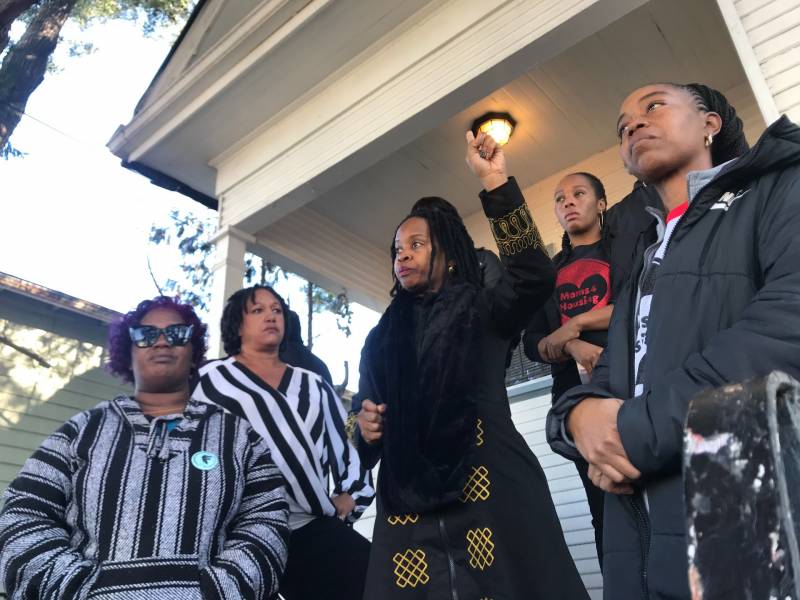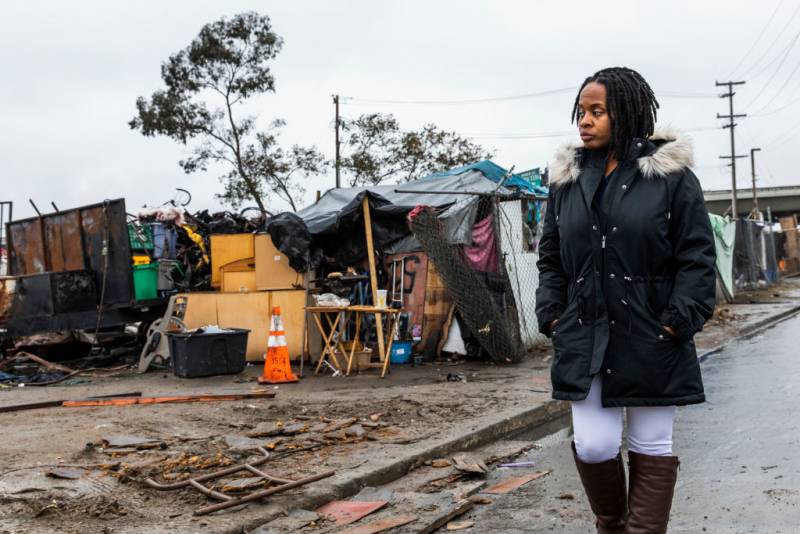That is one of the primary reasons that housing should be a human right. We have foster children. We have young people that are in college; so many people that are barred from having a safe, affordable place to stay because they just do not earn the money necessary. And even working people are out of reach for most of the housing that we see that’s coming onto the market here, [and] that’s on the market. There’s a huge problem with our entire paradigm. And we need to shift unless we want to continue to see the outcomes that we’re seeing with tent cities under every overpass and every street. And it’s just untenable at this moment.
And now the home prices are increasing in the Bay Area and we’re going to see an end to [eviction] moratoriums soon. And it’s just a problem that is insurmountable unless we do something completely different than what we’ve been doing.
How do you implement this? Would you demand, for example, a mandate that 20% of new housing be affordable housing?
What I would like to see is us put our best thinking towards what it would look like to make housing a human right. That includes people that are, to me, not necessarily doing as much as they possibly could. I think we need all of our best thinking from our developers, from our affordable housing community, from housing rights organizations. Right now, we have public land that could be utilized.
What you’re speaking of, the 20% and private developments: I do believe that we all need to do more, especially market-rate housing developers who have been paying impact fees, who’ve reached out to me even before this election. Like, ‘Carroll, can you help us with a campaign? Because we’ve been paying impact fees and we don’t know where they’re going. We don’t know how much is in the impact fee fund.’ So it’s not just a failure, according to me, it’s a failure across the board from every spectrum of individual that’s engaged in housing development.
Are you also talking about an end to real estate speculation as we’ve come to know it, and things like rent strikes?
Speculation hurts residents. Speculation harms entire communities and entire neighborhoods. When people are engaged in buying up residential property for the sole purpose of flipping it and making as much money as they can, then that leaves out an entire group of individuals who cannot compete in that type of market.
And that’s had a specific impact on Black people in the city of Oakland. And it’s had a drastic impact on the district that I live in, where speculators, including Wedgwood — the LLC that bought Mom’s house — buys properties in bulk. They buy 200 to 300 homes per month for the purpose of speculation.
I think that there should be regulation on that type of behavior. I think that’s what’s causing displacement and gentrification, and really, racialized displacement. As you’ve said on your show, 70% of Oakland’s homeless population is Black. That is not a coincidence; it is directly tied to our housing policies.


